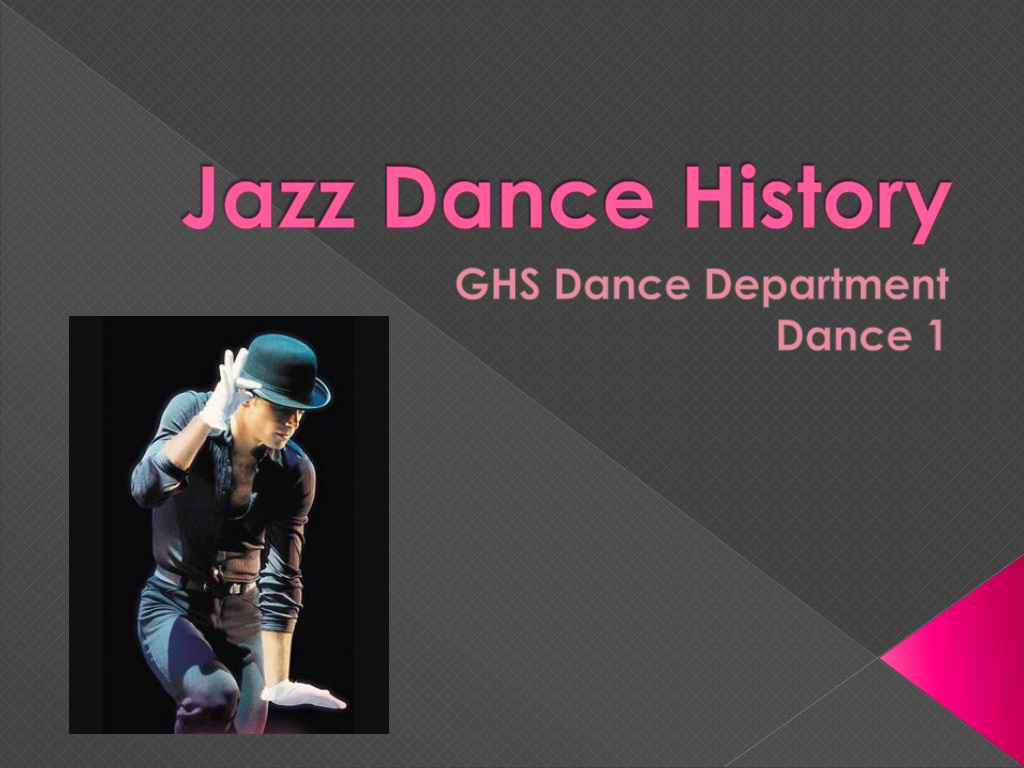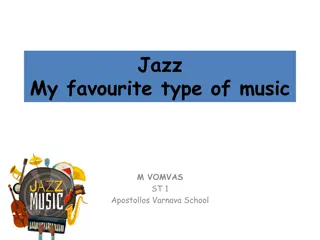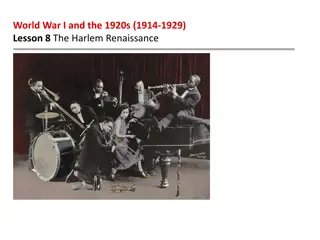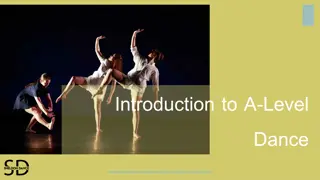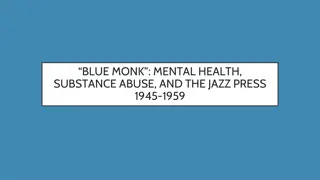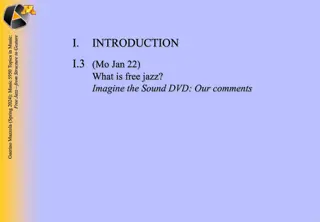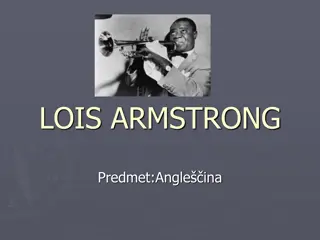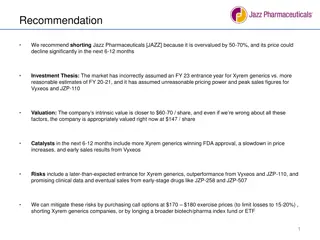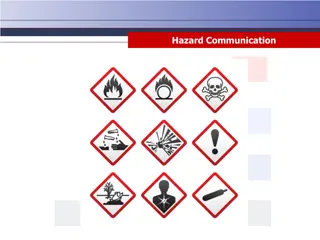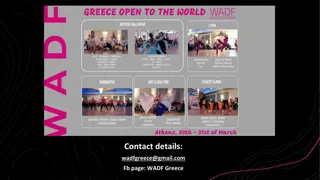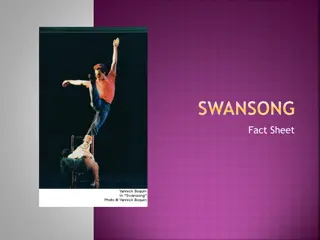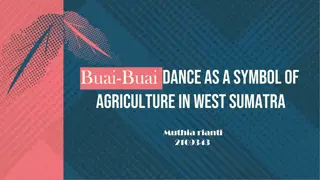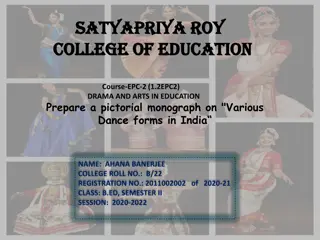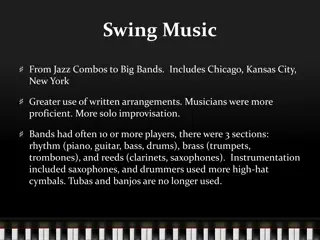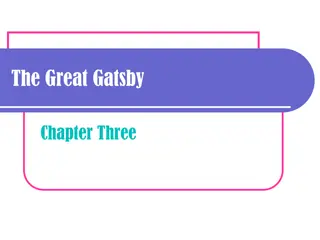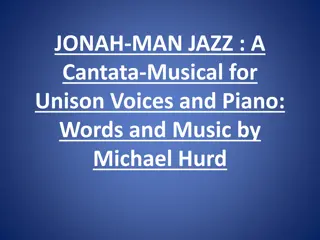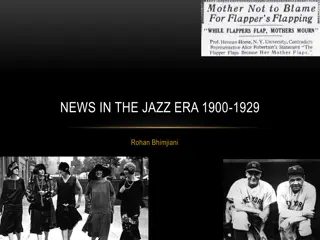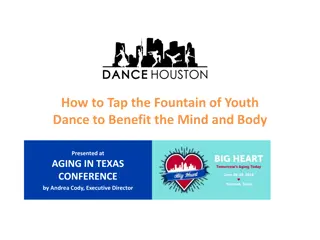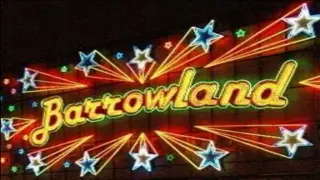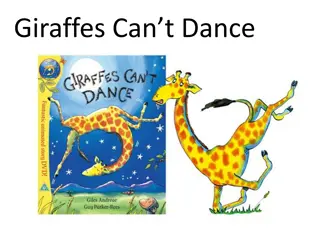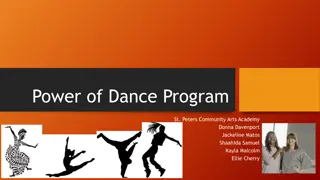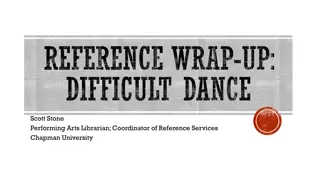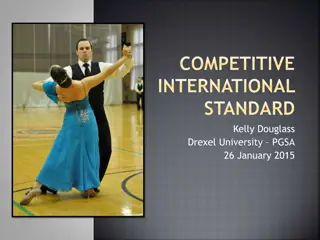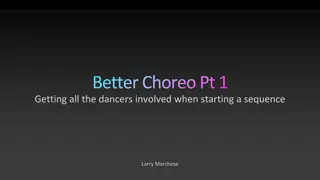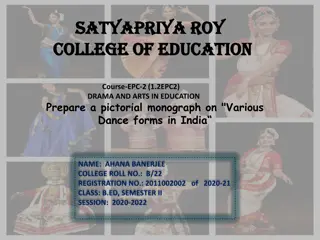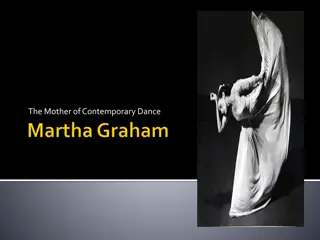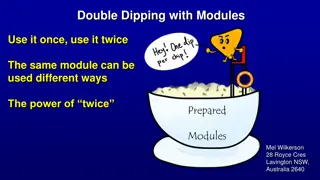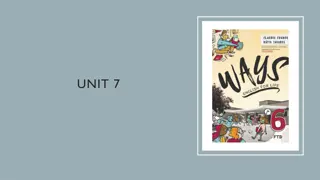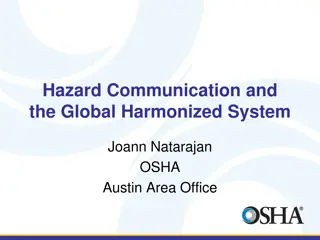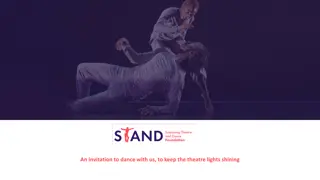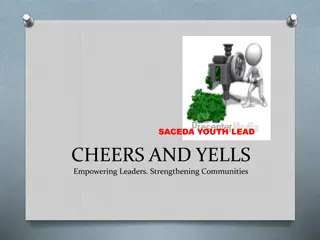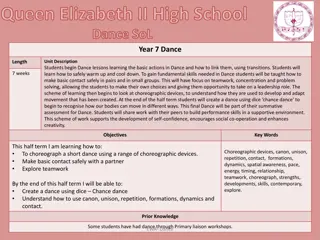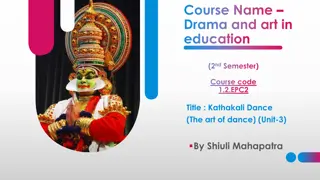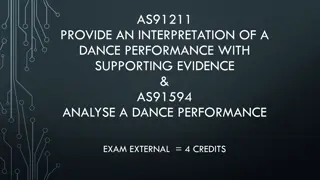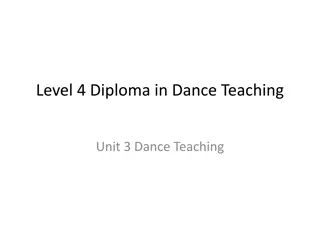Jazz Dance History and Techniques at GHS Dance Department
Jazz dance originated in the early 1900s as a blend of African and European music traditions. This dance form focuses on smooth and strong movements set to popular music. The terminology includes warm-up, isolation, parallel, turnout, and more. Jazz dance incorporates various techniques like contractions, turns, leaps, and steps such as Pas de Bourree and Jazz Square. Combinations of African and European influences characterize Jazz dance, which emerged in the 1920s in the urban American setting post-World War I.
Download Presentation

Please find below an Image/Link to download the presentation.
The content on the website is provided AS IS for your information and personal use only. It may not be sold, licensed, or shared on other websites without obtaining consent from the author. Download presentation by click this link. If you encounter any issues during the download, it is possible that the publisher has removed the file from their server.
E N D
Presentation Transcript
Jazz Dance History GHS Dance Department Dance 1
Origins of Jazz Dance Jazz is a word that came into the English language to describe the music of the early 1900s, a time when the European and African music traditions met and mingled in rich cross-cultural fertilization. Traced to the rhythms and movements brought to America by people native to Africa.
Terminology Warm-up : To lengthen the muscles, wake-up the body, release tension, and prevents muscle injury. Alignment : The accepted standards for proper postural balance. It refers to the equalization for structural and muscular forces to maintain body balance. Jazz : Dance or combination with smooth and strong movement, usually to popular music.
Isolation : Moving one body part independently of the others. Parallel : No rotation, toes straight ahead. Turnout : Outward rotation of the legs from the hip socket to the feet. Spotting : Technique used in executing a turn in order to prevent dizziness. Dance Hands : Soft hand, thumb in line with the middle finger. Jazz Hands : Fingers spread apart .. Spider Hand .
Contraction : All the muscles pull center or inward .to act as if someone punched you in the stomach. Three Step Turn : Take three equal steps while rotating 360 degrees. Pivot Turn : Half turn on the balls of the feet to change direction. Pli : A bending of the knees over the feet. Chass : To chase, a sliding action or step together step where the feet kiss in the air.
Pas de Bourree : A movement sideward (back side front). Jazz Square : Four walking steps performed to the front, side, back, and side. Pirouette : A turn performed in relev with one leg in pass . Chaine Turn : Chain or link, rapid turns in first position on demi-point. Jete : Leap, take off from one foot and land on the other
Dig : To place the ball of the foot on the floor next to the other foot. Point : To place the tips of the toes on the floor without applying weight.
Combinations Jazz dance is a combination of African and European influences cultivated in the American urban environment. Jazz dance began in the 1920 s with the end of the World War I and with the emergence of Dixieland jazz music. Jazz dance is a mirror of the social history of the American people, reflecting historical events, cultural changes, ethnic influences, and especially the music and social dances of its era.
Pioneers Pioneers in the Jazz field include: 1. Katherine Graham 2. Donald MacKayle 3. Syvilla Forte 4. Fred Astaire 5. Gene Kelly 6. Twyla Tharp 7. Bob fosse 8. The Joffrey Ballet 9. Alvin Ailey
Steam Heat http://www.youtube.com/watch?v=hAKQauAfcZU
Jazz Choreographers Today 1. Wade Robson 2. Brian Friedman 3. Sonya Tayeh 4. Dan Karaty 5. Tyce Diorio 6. Laurie Ann Gibson 7. Mandy Moore 8. Travis Payne
Comanche Choreography by Wade Robson
Brian Friedman choreography: Master Class @ Millennium in L.A.
Sweet Dreams Choreography by Mandy Moore
